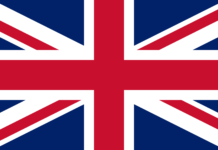Romanian adolescents aged between 12 and 17 will be able to receive a COVID-19 vaccine produced by Moderna Inc.
Romanian adolescents aged between 12 and 17 will be able to receive a COVID-19 vaccine produced by the Moderna company, starting on Monday, August 2, doctor Valeriu Gheorghta coordinator of the National Vaccination Campaign against COVID-19 has announced. The news comes after the European Medicines Agency has authorized the Moderna jab last Friday for use in this age group. It is the second vaccine authorized for the 12-17 age group, after the one produced by Pfizer. Valeriu Gheorghita also announced that in September Romania might start administering a third dose to employees in the health system and to people aged 65 or more, or those with chronic diseases, which are more vulnerable to possible infection.
Romania marks 65 years since joining UNESCO
Romania marks on Tuesday 65 years since joining UNESCO. On this occasion, an anniversary event is held at the Romanian Opera, which will include photography and fine art exhibitions, the presentation of mini-documentaries with UNESCO heritage sites in the country, as well as a concert by the Madrigal Choir. Secretary General of the Romanian National Commission for UNESCO, Madlen Şerban, has said that July 27 is primarily the day Romania joined UNESCO, but in 2021 Romania also celebrates the year when the National Commission of Romania for UNESCO was established, as a governmental interface between large, global policies decided by 193 member states and Romania as a member state.
Madlen Şerban: Education, science and culture is in the form of communication between these areas, it is the intention of all Member States to occupy people’s minds with creativity, beauty, art, dialogue, tolerance so that we do not have time for wars. UNESCO has the logo „Let’s build peace in the minds of men and women”.
UNESCO has listed the Roman gold mining area Rosia Montana in Romania as a world heritage site
Roşia Montană has been included in the UNESCO World Heritage List on Tuesday, by consensus from the World Heritage Committee in an extended session in China. The director of the National Heritage Institute, Stefan Bilici, has said that this is how the exceptional value of the most extensive underground mining complex of Roman antiquity is recognized, and thus it will have the chance of protection measures.
Stefan Bilici: Apart from recognition of value, the World Heritage Convention is built around the idea of cooperation and international support. Today it was listed as World Heritage and also included on the List of Endangered World Heritage, because by admitting its value, ICOMOS – the UNESCO Advisory Forum and then the World Heritage Committee have also recognized the vulnerability of this site. This is why the next steps must be very well coordinated, so that we can make sure that we properly protect these values that we should have known and recognized in national law for a long time.
Mădălina Brotăcel








